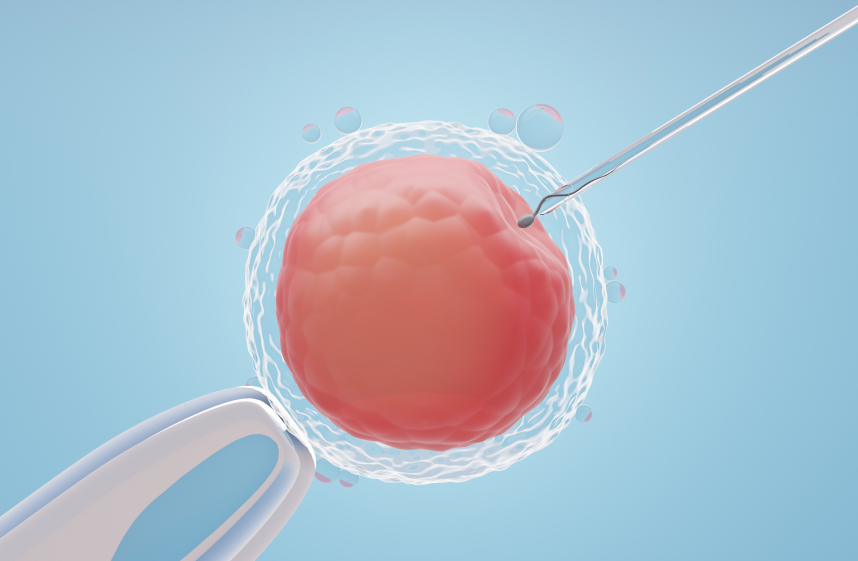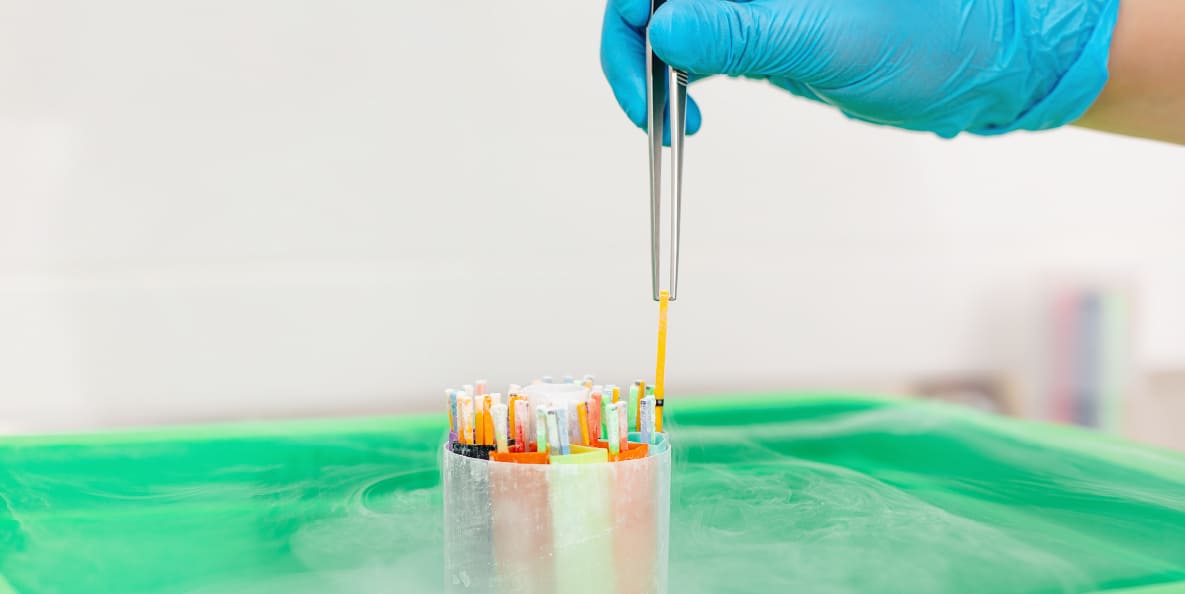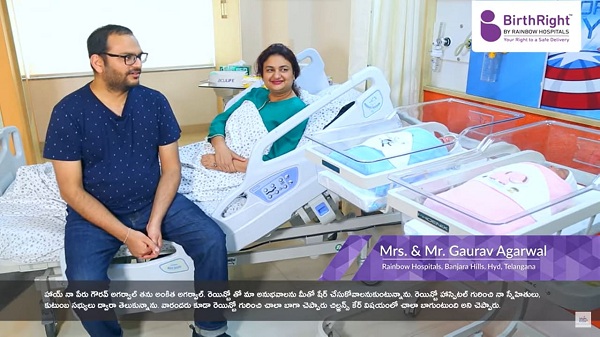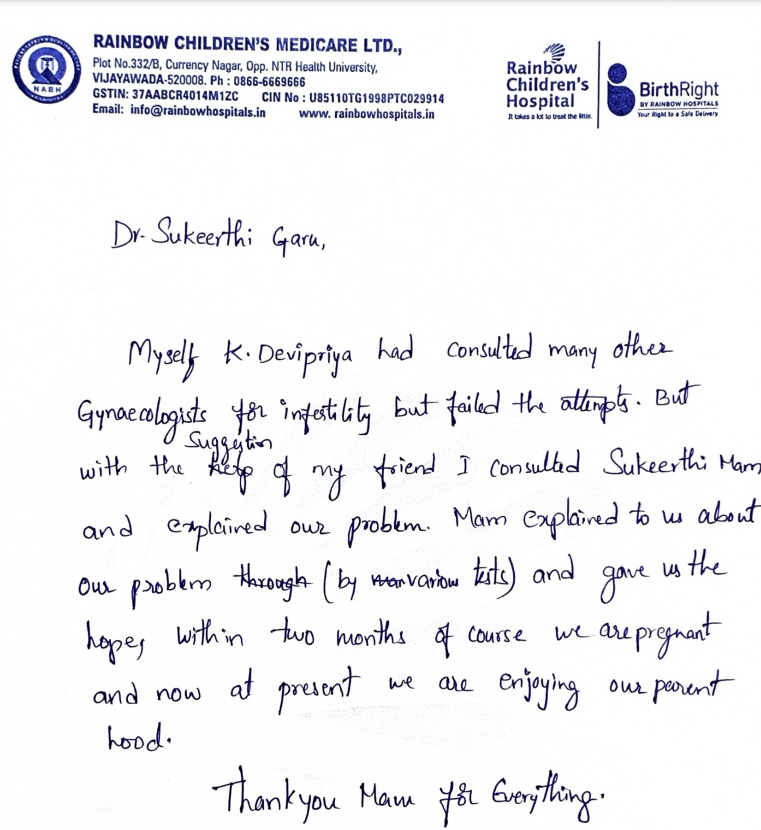Seamless support from diagnosis to post treatment care
Taking you a few steps closer from being a woman to a mother.
Intrauterine insemination (IUI) serves as an artificial fertility treatment designed to assist in achieving pregnancy when natural methods prove insufficient. This procedure involves the strategic placement of sperm within a woman's uterus to enhance the chances of fertilization.
The success of IUI is influenced by a variety of factors, making it essential to discuss individual probabilities with your fertility team. The experts at Rainbow Hospital, BirthRight, consider all unique aspects influencing your situation, formulating a customized plan that optimizes the likelihood of success.
The primary goal of IUI is to increase the number of sperms reaching the fallopian tube, enhancing the probability of fertilizing the egg and subsequently achieving pregnancy. BirthRight Fertility at Rainbow Hospitals offers various types of IUI treatments, including:
Natural IUI
-
Clomid and IUI
-
Fertility Medication and IUI
By providing these customized IUI treatments, our team strives to address the specific needs of each individual or couple, offering a comprehensive approach to fertility care.
Moreover, the experienced fertility team at BirthRight, Rainbow Hospitals, understands the importance of thorough evaluation and personalized planning in the IUI process. Before recommending a specific type of IUI treatment, the experts consider factors such as hormonal levels, menstrual cycle regularity, and overall reproductive health.
The fertility specialists at BirthRight take a holistic approach to fertility care, ensuring that each patient receives comprehensive guidance and support throughout the IUI journey. From initial consultations to the actual procedure and follow-up care, our team is committed to providing compassionate and effective assistance at every step.
Open communication is key, and the BirthRight Fertility team encourages individuals and couples to actively participate in their fertility treatment decisions. By fostering a collaborative relationship, we aim to empower our patients with knowledge, enabling them to make informed choices and increasing their confidence in the pursuit of a successful and fulfilling conception journey.
..
Find a Doctor
Expertise you can trust, Meet our esteemed doctors who bring exceptional knowledge, compassion, and innovation to provide top-notch care for your health and well-being.
Our Hospitals and ClinicsOur Hospitals and Clinics
Rainbow Children's Hospital stands as a testament to the hospital's continual pursuit of excellence and innovation, providing specialized care for women and children.
Request a Call back
Tap to Fill FormRequest a Call back
Blogs
Discover our most recent health articles provided by our reliable experts.
What Are People Saying About Us
Embark on a journey of inspiration and hope with our patient success stories, complemented by informative videos from our dedicated doctors.
IUI is one of the common procedures available today for treating infertility. This process involves washed sperm from the male partner or a sperm donor being placed in the uterus of the woman around the time of ovulation with the help of a catheter tube inserted through the cervix. Generally, this is done when natural intercourse doesn’t result in pregnancy or in cases of low sperm count in the male partner.
In most cases, women are given medications for stimulating multiple egg development, particularly when infertility is caused by a lack of ovulation. A semen specimen is then produced and collected. Semen cannot be directly injected into the uterus during IUI because the fluid contains certain chemicals that cause painful uterine spasms. That is why sperm washing is performed to separate dead sperm in the semen along with other cells. Semen washing takes around 1 hour. Then, the sperm is placed into the uterus through the cervix with the use of a thin catheter. This process takes approximately 5-10 minutes. Patients can resume normal activity after the procedure.
It is important to time any insemination at ovulation and at least within 6 hours of ovulation. Once ovulation takes place, eggs can be fertilized for only the next 12-24 hours. Hence, IUIs have to be timed to ensure the presence of sperm during the release of eggs.
Our healthcare experts may suggest certain tests before you start IUI treatment. You may have to undergo an IUI test for checking whether at least one of the fallopian tubes is open to allow the sperm to enter the fallopian tube and fertilize the egg and for the fertilized egg to come out in the womb. Regardless of your age, you will have to undergo an IUI test for checking the levels of hormones like luteinizing hormone, follicle-stimulating hormone, progesterone and estrogen. The male partner who is providing semen specimens must be tested as well for infectious diseases. Even when donor sperm is being used, it is essential to check for infectious diseases before sperm insemination can be initiated.
The success rate of IUI may vary and it is dependent on several factors such as:
- Age of the woman
- Cause of infertility
- Duration of infertility
- Use of any ovarian stimulation drugs to stimulate ovulation
- Quality and number of motile sperms
In most cases, the woman finds IUI to be more or less painless, as there is hardly any discomfort caused by the catheter. You might experience certain cramps afterward, although it is usually related to ovulation more than the IUI process itself.
Generally, women can have sexual intercourse at any point of time after undergoing IUI. However, you may be recommended to wait for a couple of days before having sex if there is any kind of complication or bleeding during the IUI process.
While bleeding after an IUI isn’t that uncommon, it still can happen. It particularly happens if there was an issue when the procedure was carried out. Some women even experience light bleeding while ovulating.
In most cases, intrauterine insemination with the sperm of the male partner results in pregnancy in the first three attempts itself. The chances of getting pregnant successfully decrease after the third attempt and decreases even further after the fourth or fifth unsuccessful attempt. Hence, it is generally recommended to undergo IUI treatment for at most three or four attempts. However, trying more IUI cycles may be necessary if the infertility is caused because of a lack of ovulation.
Quick Links
- Best IUI Specialists In Hyderabad
- Best IUI Specialists In Bangalore
- Best IUI Specialists In Delhi
- Best IUI Specialists In Chennai
- Best IUI Specialists In Vijayawada
- Best IUI Specialists In Vizag
- Best IUI Specialists In Kondapur
- Best IUI Specialists In Guindy
- Best IUI Specialists In Banjarahills
- Top IUI Specialists in India
- IUI Specialists near me in Kondapur
- IUI Specialists near me in Banjarahills
- Best Iui Doctor In Jaipur
- Best Iui Doctor In Gurgaon
- Top IUI Specialists In Kondapur
- Best Intrauterine Insemination treatment at Anna Nagar, Chennai
- Best IUI Treatment in Anna Nagar


































































